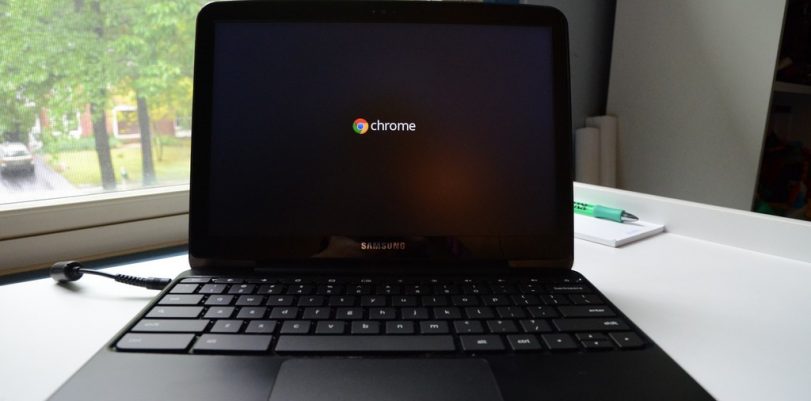Chromebook saw the daylight in 2011, and it brought to the tech world some exciting features and characteristics that made him unique among its peers. This laptop device works with the Chrome OS, which runs on Linux technology.
The Chromebook allows its users to save data, photos, apps, bookmarks, videos and all kinds of storage in the cloud while providing a reliable platform to engage in online ventures: the Google Chrome. In fact, the Chrome OS, the operative system that enables devices like the Chromebook, is centered on web activities.
Because everything about Chromebooks involves the Internet, you should know that many risks and threats can damage not only your computer and connectivity but can also harm you in some other ways you don’t even imagine.
For example, hackers can get access to your credit card information, photos and videos designed for secrecy, and much other stuff that belongs to you and can be unprotected if someone has access to your online browsing history, passwords and all interactions you engage online.
To protect yourself from any of those malicious agents, you need to get help from outside. Sure, Chrome OS and the Google Chrome provide some proxies and alternatives that you can try, but the best and most effective measure you can take is to get the services of a Virtual Private Network.
A VPN will let you encrypt all your traffic so nobody can use it to harm you or your hardware/software. It will provide you with a sense of peace and tranquility because you know you can browse the web quickly without having to be afraid of the threats of the online world, especially a web-fueled operative system like the one Chromebook uses.
In this guide, you will receive information about the best VPN for Chromebook. Before purchasing a monthly VPN plan, you should make sure that it is the right fit, according to your hardware and software. Chromebook isn’t the same as other devices and operative system, and you should acquire a service that can work accordingly.
What is a Chromebook?
The Chromebook initially conceptualized in 2009 and launched in the summer of 2011, is a laptop computer that uses a Linus-based Chrome OS operating system, designed to be one of the fastest products in the portable device industry.
Initially labeled as “Google’s fastest computer,” the Chromebook is built around the use of the Internet. You can enjoy many of its features and apps via the Google Chrome browser. Also, it has virus protection and many other features that make it a quality option.
But basing nearly all of its functions with the internet may have its consequences. The extra exposure to the web and the cloud storage may bring privacy and security problems, and users of Chromebooks may benefit from acquiring a quality VPN.
Pages and features in a Chromebook load faster than other laptops and portable alternatives. In addition to the features described above, the Chromebook’s battery lasts a little longer than its competitors.
About Chrome OS
Chrome OS is the name of the operating system that runs Chromebooks. It is based on Linux and uses Google Chrome, the web browser, as the primary user’s interface. Since the operating system is based on the cloud, Chrome OS runs web apps, mainly.
Chrome OS runs since July 2009, when developers marketed it on Acer and Samsung laptops. The system functions with microprocessors with x86 or ARM technology and has a media player. It supports Chrome Apps, with some Android apps added recently.
The system looks good and has many excellent characteristics, but owners and users should note that they can benefit from the use of a VPN because its modus operandi can let some Internet threats and malicious agents enter your network.
For this, Chrome OS has three ways to run a VPN: using the L2TP VPN client, downloading an Android app or implementing a Chrome VPN browser add-on.
What is a VPN and how does it work?
Imagine that you connect to a public Wi-Fi network, say, in the airport. You would be sharing data and information with hundreds of people you don’t know, and, even worse, some of them may have access to your traffic. Valuable information could leak, and this is not good.
This is where a VPN, or Virtual Private Network, thrives. The system tunnels your traffic and redirecting it to a server of your choice, which will protect all of your data from any third parties that want to ruin your party.
With a VPN, you can also enjoy contents from any country available in the server list of your provider. This means that many of the sites that show the “geo-blocked” message (which appears when you try to access a page from outside the host’s country) will now be available for your enjoyment and pleasure.
L2TP/IPsec
Chromebooks come with a VPN client included, that supports the L2TP/IPsec VPN protocol, which means that you can configure your device to use any provider that can also run the mentioned protocol. Many of the current alternatives in the market do.
To properly configure a VPN on your Chromebook, you should:
- Start your Chromebook and sign in to it.
- Click the network icon at the lower part of the screen.
- Select “Settings.”
- Select “Internet connection.”
- Select “Add connection.”
- Select “Add private network.”
- Complete the information with the details provided by your VPN service.
- Click on “Connect.”
- Done! You will now have a shield against anyone on the Internet.
What is the best VPN for Chromebook?
The most reliable alternatives are:
- TorGuard: The best option available. It has an excellent customer service and care and also has servers in many locations that can make your online experience a better, safer one. They also have a browser proxy, which works great for chrome.
- IPVanish: With this option, developers make sure you surf the web without leaving no trace. Your IP address will be a mystery for every agent online, and it also gets around censorship measures with relative ease.
- GhostVPN: the most evident advantages of using GhostVPN are its low price and the impressive security features that it has to offer, like DNS leak protection, kill switches, proxy support, script support, and more. It is also one of the fastest alternatives out there.
- PIA: PIA has more than 3000 servers around the world. It has Ad blocking and supports P2P file sharing and BitTorrent. Reasonable price.
- ExpressVPN: This experienced VPN has a 30-day money-back guarantee, has no usage logs and offers you servers in 94 nations, which is a huge advantage. It is a little expensive, but nothing outrageous, and also has an excellent customer service.
Conclusion
In conclusion, you need a VPN server to make sure all your traffic and data is tunneled and that no bit of information leaks through the tunnel and falls into the unscrupulous hands of hackers, governmental institutions, companies, and even your internet service provider (ISP).
Sometimes, your ISP can sell your browsing history and location information to some firms, who will use it to offer you endless content that you just don’t want to receive. The best thing to do, especially with a Chromebook and its high level of internet dependency, is to protect and give yourself the greatest online gift of all: privacy.
As it turns out, setting up a Virtual Private Network (VPN) is the best tool you can use to achieve those goals while being online. No one will be able to track you or have access to your stuff because your IP address and you will “hide” your most valuable online assets.
Also, it lets you watch online streaming content, download stuff or even access geo-blocked sites from anywhere in the world, because of the IP address hiding. A VPN enables you to borrow a foreign IP address at your convenience.


